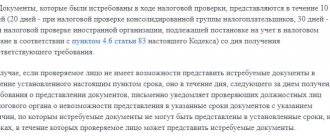Types of currency violations
Ordinary citizens, entrepreneurs and legal entities who carry out currency transactions are required to comply with the provisions of the Law “On Currency Regulation and Currency Control” dated December 10, 2003 No. 173 (as amended on July 2, 2021). If they are not observed, violators, depending on the severity of the offense, risk falling under the sanctions of the Code of Administrative Offenses and the Criminal Code of the Russian Federation. Illegal currency transactions may include the following:
- acquisition or sale of foreign currency or checks denominated in foreign currency without the participation of authorized banks;
- conducting foreign exchange transactions in foreign currency not through accounts opened with authorized banks, or bypassing foreign accounts, in cases not provided for by federal currency legislation;
- carrying out operations not provided for by currency legislation with the participation of funds credited to foreign accounts.
Find out what kind of currency transactions there are from the article “Currency transactions: concept, types, classifications” .
In addition, currency violations include:
- failure to submit or submit in violation of deadlines information on the opening/closing (change of details) of foreign accounts of residents who are engaged in business;
- failure to submit, violation of the deadlines (procedure) for submitting reports on currency transactions on accounts in banks (other financial organizations) outside the Russian Federation, including transfers without an account through electronic means of payment of foreign suppliers;
- untimely crediting by residents of funds to accounts in authorized banks from transactions made with non-residents (transfer of goods by non-residents, performance of work, services, etc.);
- untimely return to Russian territory of funds received from a non-resident for a transaction not completed in the Russian Federation.
Violation of currency laws - fines from 2022
The fines imposed for violation of currency legislation are specified in Art. 15.25 Code of Administrative Offenses of the Russian Federation. Prosecution for failure to provide information, documents (or presentation of false information) is also stipulated in Art. 19.4 and 19.7 Code of Administrative Offenses of the Russian Federation. The amount of fines depends on the type of violation, as well as on the category of the offender: simple individual, legal entity, individual entrepreneur.
Typically, fines for individuals are an order of magnitude less than those established for violators - legal entities. In addition, along with the imposition of a fine on a legal entity for carrying out an illegal currency transaction, sanctions are also applied to officials of such an organization who are guilty of committing offenses.
The minimum fine for violators - individuals is 1000 rubles. For legal entities, this amount is more significant: the minimum fine is 50,000 rubles. It is quite common to impose a fine in the amount of ¾ to 1 of the size of such an operation.
For violation of the deadlines for crediting funds within the framework of currency legislation, violators will face sanctions not in a fixed amount, as for carrying out illegal currency transactions, but in the amount of 1/150 of the Central Bank refinancing rate. Deductions are made from the uncredited amount for each day of delay.
Meanwhile, in 2022, gradually introduced relaxations in terms of foreign exchange controls will apply. For example, residents may no longer return part of their foreign currency earnings (about 30%) to ruble accounts under commodity contracts.
In case of violation of the crediting of proceeds under ruble contracts, a fine of 3-5% is imposed, and for foreign currency contracts - from 5 to 30%. Sanctions are applied at the end of 45 days after the day of obligations to credit funds - this is the date specified in the agreement (clause 9 of Article 15.25 of the Code of Administrative Offenses of the Russian Federation). Liability under foreign trade agreements (contracts) concluded by a resident and a non-resident for small amounts (up to 200 thousand rubles) is not provided for (clause 8 of article 15.25 of the Code of Administrative Offenses of the Russian Federation).
ConsultantPlus experts explained in detail how to make a foreign currency payment and what documents to submit to the bank. If you do not have access to the K+ system, get a trial demo access for free.
What documents are required for currency control and what are its other features, read here.
Responsibility for violation of currency legislation
The materials were prepared by a group of consultants and methodologists of JSC Intercom-Audit
Article 5 of the Law of the Russian Federation of October 9, 1992 No. 3615-1 “On Currency Regulation and Currency Control” provides for the mandatory crediting of foreign currency received by enterprises (organizations) to accounts in authorized banks, unless otherwise established by the Central Bank of the Russian Federation.
Responsibility for violation of currency legislation is provided for in Article 14 of the above-mentioned Law. Persons guilty of violating currency legislation bear criminal, administrative, civil and other liability in accordance with the legislation of the Russian Federation. Repeated violation of currency legislation, failure to comply or improper compliance with the instructions of currency control authorities entails:
— suspension of licenses and permits issued by currency control authorities to residents, authorized banks, and non-residents;
— deprivation of residents, authorized banks, non-residents of licenses and permits.
According to Decree of the President of the Russian Federation dated June 14, 1992 No. 629 “On partial changes in the procedure for the mandatory sale of part of foreign currency earnings and collection of export duties,” foreign currency earnings from the export or sale of foreign currency in the territory of the Russian Federation of goods (works, services) are subject to mandatory crediting to accounts with authorized banks on the territory of the Russian Federation, unless otherwise permitted by the Central Bank of the Russian Federation.
For violation of this procedure, enterprises are subject to a fine imposed by tax authorities or the Currency Control Inspectorate in the amount of all hidden earnings in foreign currency or the ruble equivalent of the fine at the rate of the Central Bank of the Russian Federation. The fine amounts go to the federal budget of the Russian Federation. Payment of a fine does not relieve enterprises from the mandatory transfer of foreign currency earnings to accounts in authorized banks of the Russian Federation.
Administrative liability for violation of currency legislation is provided for by the Code of the Russian Federation on Administrative Offenses dated December 30, 2001 No. 195-FZ:
Article 15.25. Violation of currency laws
1. Carrying out currency transactions without a special permit (license), if such a permit (such license) is mandatory (mandatory), or in violation of the requirements (conditions, restrictions) established by a special permit (license), as well as using obviously open ones in violation of the established procedure for residents' accounts in credit institutions outside the Russian Federation -
entails the imposition of an administrative fine on citizens, officials and legal entities in the amount of one tenth to one the amount of the illegal currency transaction.
2. Failure to fulfill within the established time limit the obligation to import into the territory of the Russian Federation goods the cost of which is equivalent to the amount of money paid for them, or failure to return the amount of money transferred for these goods within the established period -
entails the imposition of an administrative fine on citizens, officials and legal entities in the amount of one tenth to one the amount of the illegal currency transaction.
3. Violation of the established procedure for crediting proceeds due for exported works, services, results of intellectual activity to accounts in authorized banks -
shall entail the imposition of an administrative fine on officials and legal entities in the amount of the cost of work, services and results of intellectual activity that were the subject of an administrative offense.
4. Failure to comply with the established procedure for maintaining records, drawing up and submitting reports on currency transactions, as well as violation of the established storage periods for accounting and reporting documents -
shall entail the imposition of an administrative fine on officials in the amount of from fifty to one hundred times the minimum wage; for legal entities - from four hundred to five hundred minimum wages.
Criminal liability for failure to return funds in foreign currency from abroad is provided for by the Criminal Code of the Russian Federation of June 13, 1996 No. 63-FZ:
Article 193. Failure to return funds in foreign currency from abroad
Failure to return large amounts from abroad by the head of an organization of funds in foreign currency that are subject, in accordance with the legislation of the Russian Federation, to mandatory transfer to accounts in an authorized bank of the Russian Federation -
is punishable by imprisonment for a term of up to three years.
Note. The act provided for in this article is recognized as committed on a large scale if the amount of unreturned funds in foreign currency exceeds ten thousand minimum wages.
In accordance with Article 198 of the Customs Code of the Russian Federation, the currency control authority in the Russian Federation is the State Customs Committee of the Russian Federation. Other customs authorities are agents of currency control and are accountable to the State Customs Committee of the Russian Federation.
When implementing currency control, the functions of customs authorities are determined within the competence of the customs authorities of the Russian Federation in the field of currency control:
Article 199. Competence of the customs authorities of the Russian Federation in the field of currency control
The customs authorities of the Russian Federation exercise currency control over the movement of persons across the customs border of the Russian Federation, with the exception of the perimeters of free customs zones and free warehouses, the currency of the Russian Federation, securities in the currency of the Russian Federation, currency values, as well as currency transactions related to the movement across the specified border of goods and vehicles.
The customs authorities of the Russian Federation must exercise currency control in accordance with the currency legislation of the Russian Federation and the Customs Code of the Russian Federation.
Based on Article 201 of the Customs Code of the Russian Federation, when the customs authorities of the Russian Federation identify violations of currency legislation, which are simultaneously violations of customs rules or offenses encroaching on the normal activities of the customs authorities of the Russian Federation, persons are liable in accordance with the Customs Code of the Russian Federation. In other cases, liability for violations of the currency legislation of the Russian Federation identified by customs authorities occurs in accordance with the currency and other legislation of the Russian Federation.
* About the role of banks in currency control and how to pass currency control, read the material “Both ours and yours, or How to pass currency control” in the fourth issue of the magazine “Calculation”. The full text of the article is published on the journal’s website at: https://www.berator.ru/raschet/article/1105.
Which article of the Criminal Code of the Russian Federation contains sanctions for illegal currency transactions?
Even more serious liability for carrying out illegal currency transactions is established by Art. 193, 193.1 of the Criminal Code of the Russian Federation - from large fines to imprisonment.
Under criminal liability, according to Art. 193, includes non-return from abroad of (especially) large sums in foreign currency. Unreturned money is considered to be amounts that, according to the contract, should have been credited to the resident at the authorized bank, but never reached the corresponding current accounts. If the amount of uncredited funds during the year for one-time (repeated) currency transactions exceeds 100 million rubles, it is considered that this is a major violation, and the following punishment is provided:
- a fine of 200 thousand to 500 thousand rubles, but depending on the conditions of the violation, it may entail the seizure of wages (income) for a period of 1 to 3 years, forced labor or an actual prison term of up to 3 years;
- for violations committed by a group of persons by prior conspiracy, the fine framework has been changed from 300 thousand to 500 thousand rubles, but the actual term can reach 4 years.
If the size of illegal currency transactions is equal to or greater than a particularly large amount (that is, more than 150 million rubles), a group of persons was involved in the case, a forged document was present, or an organization was used in the scheme, then the amount of sanctions will be as follows:
- up to 5 years imprisonment, fine up to 1 million rubles. or withdrawal in the same amount of salary (income) for 5 years.
Next article 193.1 of the Criminal Code of the Russian Federation regulates the transfer of foreign currency to the accounts of non-residents. If such a transfer was accompanied by the provision of false data to the bank, then the punishment may be:
- a fine of 200 thousand to 500 thousand rubles, but depending on the conditions of the violation, it may entail the seizure of wages (income) for a period of 1 to 3 years, forced labor or an actual prison term of up to 3 years.
If the violation was committed by a group of persons by agreement, on a large scale or in the scheme, an organization was specially introduced through which all transfers were made:
- up to 5 years imprisonment with a fine of up to 1 million rubles. or withdrawal of the same amount of salary (income) for 5 years.
If the size of the violation is particularly large or a group of persons participated in it:
- from 5 to 10 years imprisonment with a fine of up to 1 million rubles. or withdrawal of the same amount of salary (income) for 5 years.
Sanctions applied under Art. 193.1, refer to amounts (for one-time, repeated transactions throughout the year) that have reached a large amount, more than 9 million rubles, or especially large amounts - more than 45 million rubles.
What is the statute of limitations for currency control authorities to hold them accountable?
The statute of limitations for prosecution for violation of currency laws in 2022 is 2 years. This time period was established in 2016; up to this point it did not exceed 1 year.
The increase was required for the reason that documents from customs authorities or banks about violations of the law were often received by Rosfinnadzor, and after its abolition - by the Federal Tax Service after the period during which violators could be held accountable had expired.
The specified two-year statute of limitations applies to prosecution for all currency violations specified in Art. 15.25 Code of Administrative Offenses of the Russian Federation. For example, this provision will affect the lack of transfer to the resident’s account of foreign exchange earnings for goods sold, and untimely reporting for conducting a currency transaction, etc. The statute of limitations in all cases is calculated from the day (date) when the illegal currency transaction was carried out.
What has changed in the law
| Currently | What will happen |
| Residents must notify authorized banking institutions about the maximum possible time frame for receiving revenue, confirmed by agreement, from non-residents to their own accounts in these banks, as well as about deliveries of products from non-residents on account of a previously transferred prepayment. This rule is regulated by Part 1.1. Art. 19 Federal Law “On currency regulation in foreign trade activities” | The article will stipulate that the deadlines for fulfilling the obligations of both parties must be regulated by the contract. |
| Art. 23, namely its 5th part, states that an authorized bank may refuse to conduct a currency transaction if the entrepreneur has not provided the necessary documents or they contain false information. | This rule has been expanded. If the implementation of a currency transaction violates the rules specified in Art. 9, art. 12, art. 14 (simultaneously or separately) of the above law, the bank may refuse to carry out the procedure. |
In addition, the operation will be denied if the entrepreneur, a citizen of the Russian Federation, sent documents at the request of the bank that do not meet the requirements of the Law “On Currency Transactions.” Entrepreneurs will receive a written decision to refuse to carry out the above operation within the next working day.
Results
The list of violations that may result in prosecution is given in Art. 15.25 Code of Administrative Offenses of the Russian Federation. Carrying out illegal currency transactions entails bringing the violator to administrative or criminal liability. The list of sanctions includes fines and even imprisonment.
What is important to know when working with currency, read in the section “Currency Transactions” .
You can find more complete information on the topic in ConsultantPlus. Free trial access to the system for 2 days.







